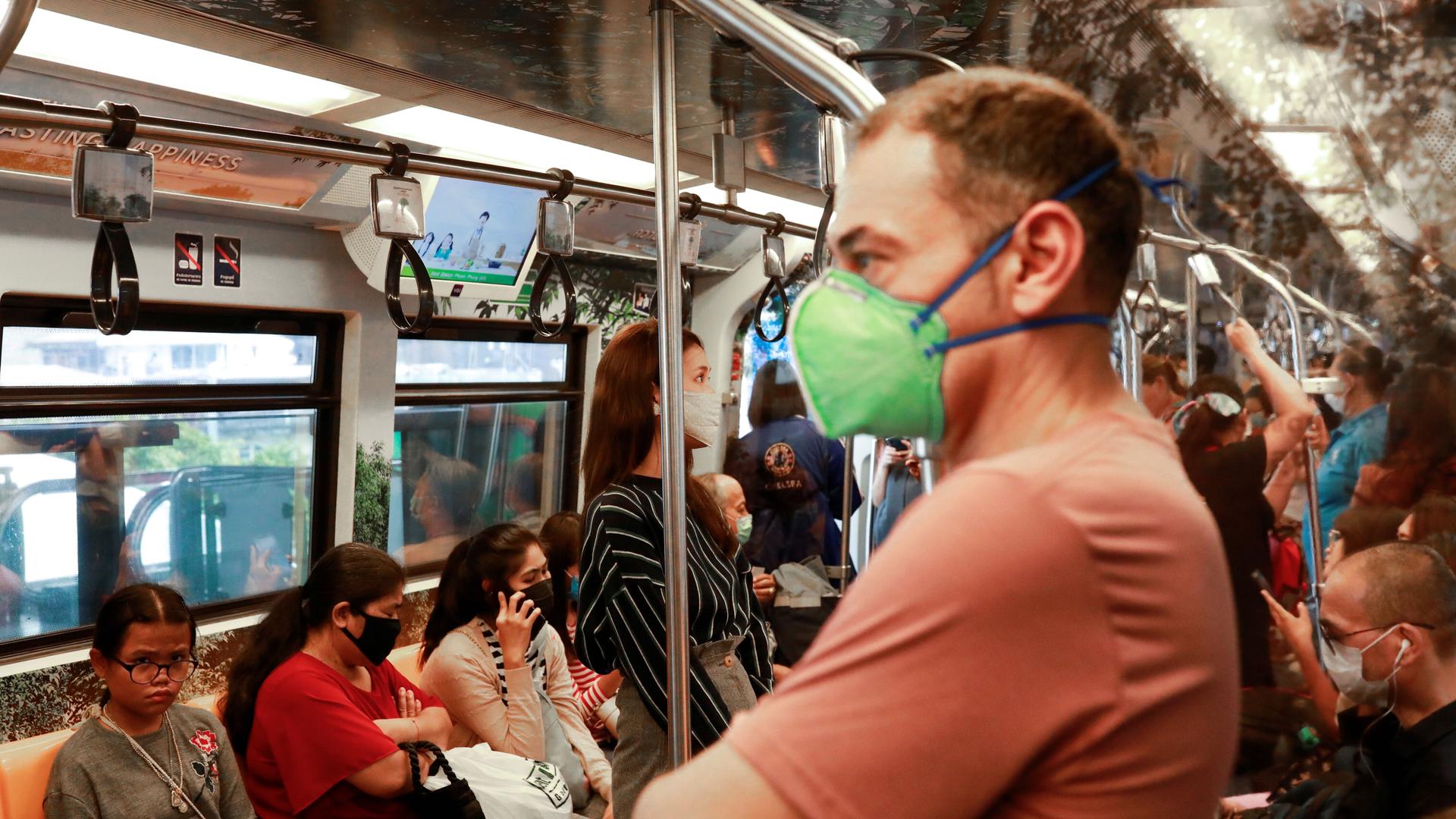At first glance, it looks like any other hospital mask. Two loops of string slip over your ears. The material covering your face is that signature shade of sea-foam green.
But the mask is worthless. It’s nearly thin as tissue paper. Medical-grade masks have three layers of synthetic fabric, a wall to stop airborne sneezes and saliva, but this mask has one layer — and it’s practically transparent.
“The air just flows right in and hits your face.”
“The air just flows right in and hits your face,” said a Bangkok teacher in her mid-30s who prefers to go by Ja. She recently bought this low-grade mask on a street corner and, within seconds of putting it on, she knew she’d been scammed.
Related: In Jerusalem’s Old City, the faithful cope with the coronavirus
“It’s infuriating,” Ja said. “How could you sell that to someone at a time like this? How is that OK?”
No one wants to buy medical supplies from a street hawker — especially during the coronavirus pandemic. Yet in many parts of Asia, there are few good options. Pharmacies are often sold out. Each morning, people queue outside drug stores in hopes of stocking up.
But where there is demand, hustlers arise.
In Indonesia, police have raided factories churning out criminally subpar masks. Low-grade masks have also been seized by Hong Kong authorities. In mainland China, online superstore Alibaba has cracked down on sellers of dodgy masks, vowing to “make the offenders pay the heaviest price!”
Worst of all are scammers who have collected used and soiled masks, run them through a washing machine, ironed them flat and resold them as new. (Thai police raided such an operation earlier this month.) Some shoppers ordering masks via social media have even received masks smudged with grime.
The efficacy of surgical masks during this pandemic is debated. But in countries such as Thailand and China, various officials have implied to an anxious public that wearing masks is tantamount to a civic duty.
On Twitter, an account run by staff of Thai Health Minister Anutin Charnvirakul praised Thais for wearing masks en masse — but warned that they must “be more wary of Westerners than Asians.” Few Westerners, the tweets explained, are willing to wear masks, and “many are dressed filthily and never shower … we have to be careful.”
Related: COVID-19 impact could be as ‘serious as a world war,’ former amb says
The World Health Organization only advises people who are “coughing or sneezing” to wear single-use surgical masks — as well as anyone caring for an infected person.
But among the public in places such as Thailand, South Korea and Taiwan, surgical masks are widely believed to reduce the spread of COVID-19. There is a logic to this: Infected people don’t show symptoms right away — and mass adoption of masks ensures that their faces are covered long before they begin coughing and sneezing.
Even Thailand’s health minister — in a since-deleted tweet — said Westerners’ reluctance to use masks is the reason why contagions are spreading in their home countries.
But given the shortage of high-grade surgical masks, what remains abundant in shops in Bangkok (and other Asian capitals) are masks made of cloth. Yet WHO states these cotton masks “are not recommended under any circumstance.”
Related: 179 countries have paid sick leave. Not the US.
Exacerbating Thailand’s shortage is a legal order warning sellers against selling a surgical mask for more than the equivalent of $0.08. Those who disobey this law can theoretically face up to five years in prison.
“The cops keep coming around to see if we’re price-gouging masks. They say we’ll really get arrested if we hike up the price.”
“The cops keep coming around to see if we’re price-gouging masks,” said the manager of a Bangkok pharmacy who would only give his name as Wittaya. “They say we’ll really get arrested if we hike up the price.”
The order — meant to ensure Thailand’s lowest-income workers can afford masks — reduces the incentive for pharmacies to seek out a fresh supply of masks, Wittaya said. “Not that it matters much,” he said, “because all of my suppliers are backordered anyway.”
Still, for those willing to flout the law, there are options.
Related: Living under lockdown in the Eternal City
An enterprising pineapple vendor, stationed just up the street from Wittaya’s pharmacy, had set up an extra stall on the sidewalk to sell cloth masks. Asked if she had surgical masks, she looked around, lifted up a box of fruit and revealed a small stash of contraband: high-grade, triple-ply masks.
The asking price: roughly $1 — a more than a 10-fold markup over the price decreed by the government.
